SOME ESL MAJOR PROJECTS
- Tema Port Expansion
- Scope Reporting Aker Energy
- Aker Energy GNPC Scholars Program
- Hess GNPC Scholars Program
- PROJECT 1
- PROJECT 2
- PROJECT 3
- PROJECT 4
- PROJECT 5
- PROJECT 6
- PROJECT 7
- PROJECT 8
Tema New Port and Container Terminal (Ghana)
Pre-construction Environmental Monitoring 2016 (ESL Consulting Limited)
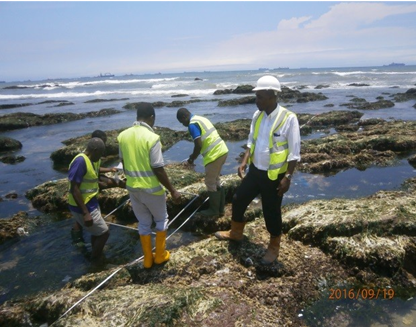 The construction of the Tema New Port and Container Terminal by China Harbours Engineering (Ghana) Company (CHEC) is part of the Tema Port Development Master Plan being developed by Ghana Ports and Harbours Authority (GPHA). As per best practices in international port construction, extensive ecological assessments are needed before the construction to verify ecological data obtained during the ESIA for the project which was completed in 2015. The assessment was also aimed at filling in gaps identified during the review of the ESIA and most importantly determine the current state of the environment prior to construction. ESL Consulting, one of the leading environmental consulting firms in Ghana, undertook the offshore and lagoon environmental monitoring/assessment to establish the baseline conditions prior to construction.
The construction of the Tema New Port and Container Terminal by China Harbours Engineering (Ghana) Company (CHEC) is part of the Tema Port Development Master Plan being developed by Ghana Ports and Harbours Authority (GPHA). As per best practices in international port construction, extensive ecological assessments are needed before the construction to verify ecological data obtained during the ESIA for the project which was completed in 2015. The assessment was also aimed at filling in gaps identified during the review of the ESIA and most importantly determine the current state of the environment prior to construction. ESL Consulting, one of the leading environmental consulting firms in Ghana, undertook the offshore and lagoon environmental monitoring/assessment to establish the baseline conditions prior to construction.
Fish Impact Assessment
The assessment was also aimed at fulfilling the Fisheries Law (Act 625) requirement which requires assessment of impacts for projects that are likely to have impacts on fisheries and other aquatic resources. Specifically, the objectives of the assessments were to assess impacts of the project on the fishery resources in the marine environment and propose recommendations in a Management plan.
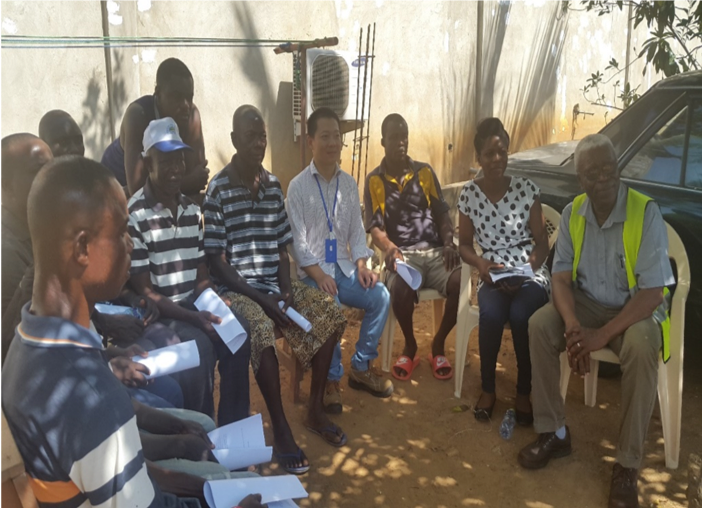
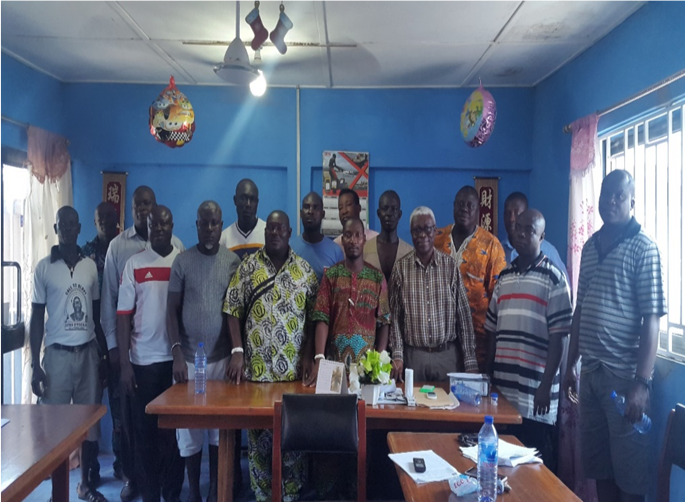
As part of the ESIA process in respect of the Aker Energy’s Deep Tano Cape Three Point (DWT/CTP) Development, ESL undertook a scoping study from 18 June to 18 July, 2018 for Aker Energy for which high level stakeholder consultations were conducted. The initial phase of work to develop the scope for the Aker Energy ESIA involved identifying the components of the Project and the activities involved in construction, operation and closure, and considering how these could be expected to interact with known environmental and social conditions in the vicinity of the Project.
To inform the scope of the assessment, the ESL ESIA Team undertook a programme of consultations on the Project and the EIA Terms of Reference. The exercise included an analysis and identification of potential stakeholders which were to be used to inform the development of the programme. ESL adopted international best practice to actively engage the stakeholders throughout the scoping study exercise. Consultations and engagements were carried out in good faith with mutual obligation. Approaches and procedures were transparent, inclusive and culturally appropriate. The stakeholder identification exercise undertaken to select key stakeholder groups and organisations was based on ESL’s experience in similar ESIAs in Ghana. These stakeholders were selected on the basis that they would have an interest in the Project and would also have knowledge through which to provide insight into possible issues and concerns related to the Project. Further stakeholder groups were identified through the consultation process.
Fifteen (15) stakeholders were contacted prior to the commencement of the scoping study through an invitation letter and a BID, and were engaged through consultative meetings. Fifteen (15) public scoping meetings were conducted. Eight (8) of the meetings were held in Takoradi and 7 in Accra. During the open house session, attendees had the opportunity to view presentation boards and maps that displayed project information and were able to ask questions about the project team. The meetings were well attended, with many public comments at the venues.
The analysis of the scoping consultations comments using content analysis and reflecting on key considerations that emerged, gave the general opinion and an overall impression that, in spite of the stakeholder concerns raised, the stakeholders were of the view that the benefits of the DWT/CTP development optimally outweighs the negative impacts as all the comments invariably indicated preference in favour of the development
Upon EPA’s approval of the Terms of Reference for the full ESIA study, ESL hopes to commence a comprehensive and all inclusive programme of both low and high levels stakeholder engagements.
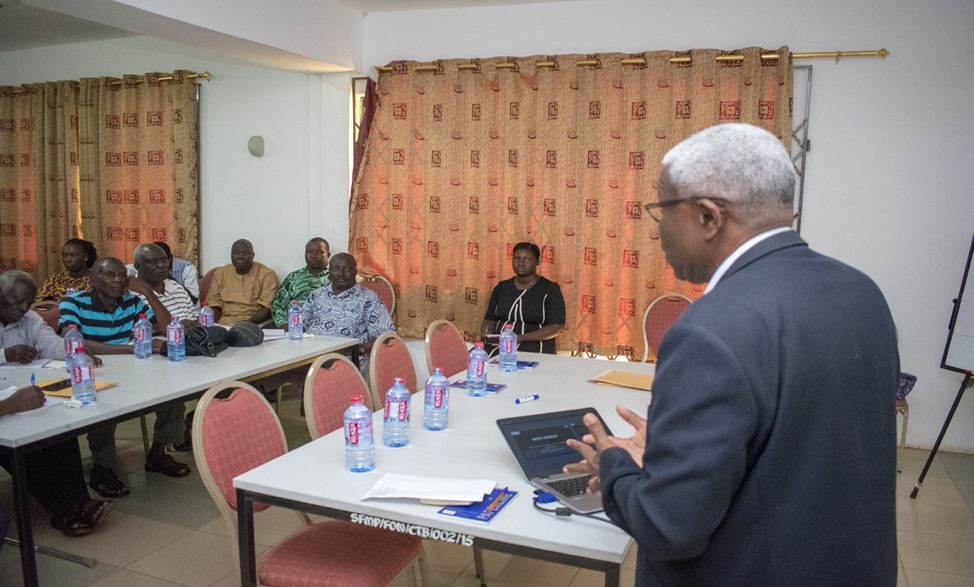
Aker Energy Company Presentation
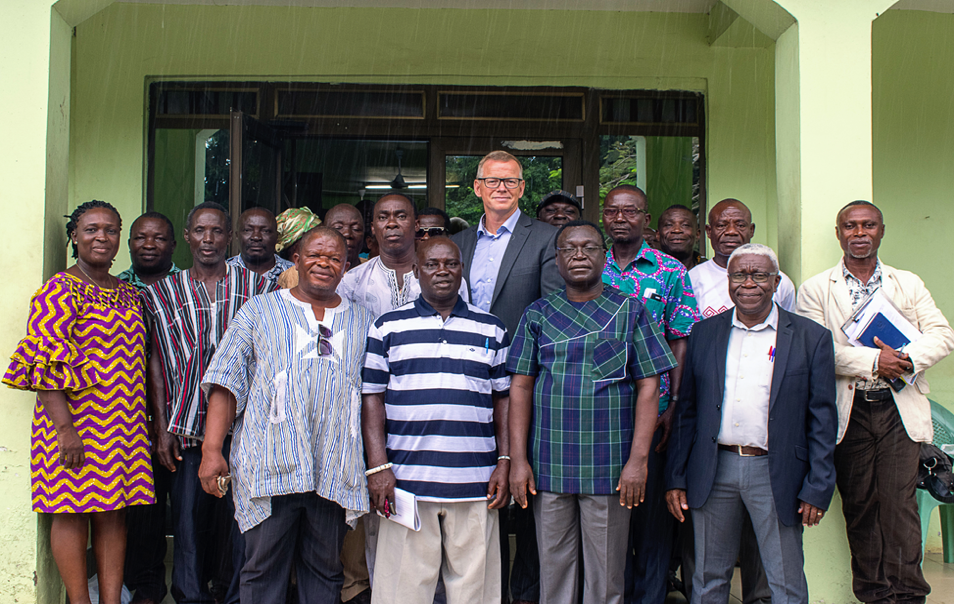
Photographs taken during and after the meeting with the Fishermen Association, Takoradi.
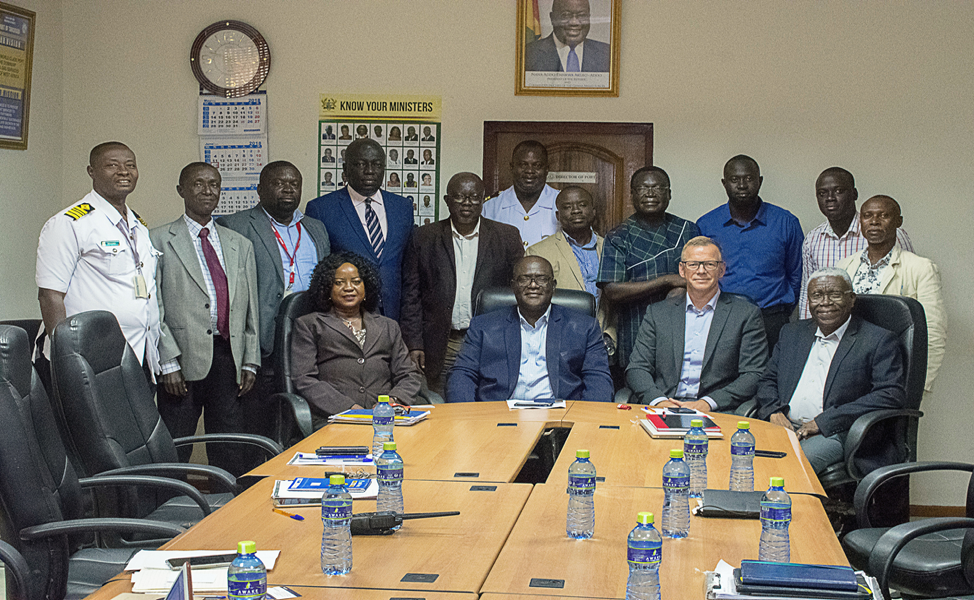
Picture taken during and after the meeting with the GPHA, Takoradi.
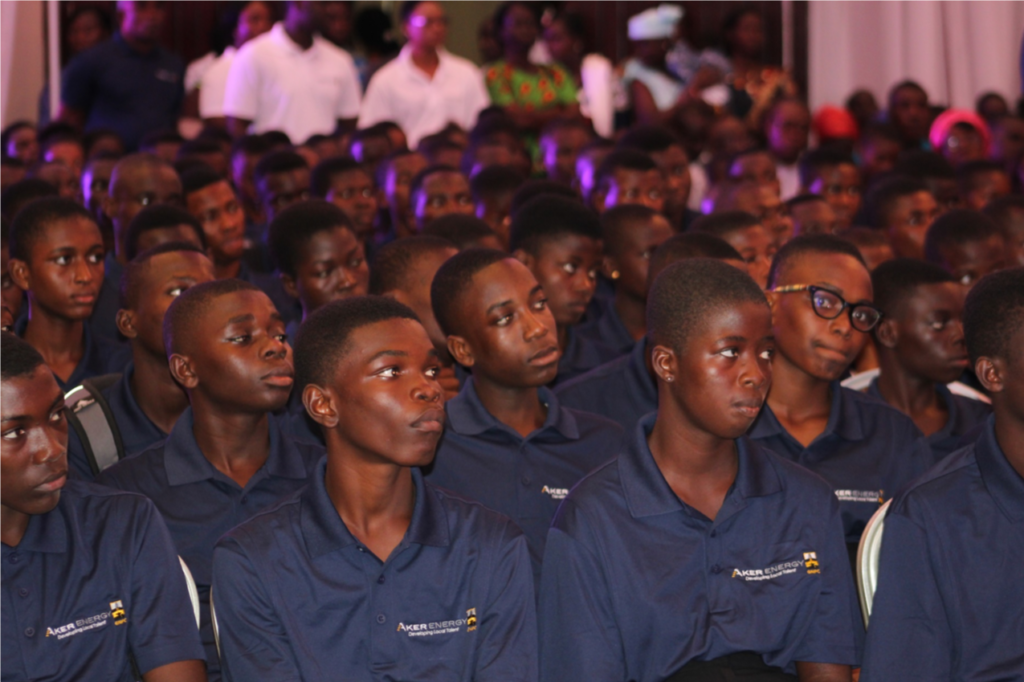
New scholars at Aker Energy GNPC Scholars inauguration 2018
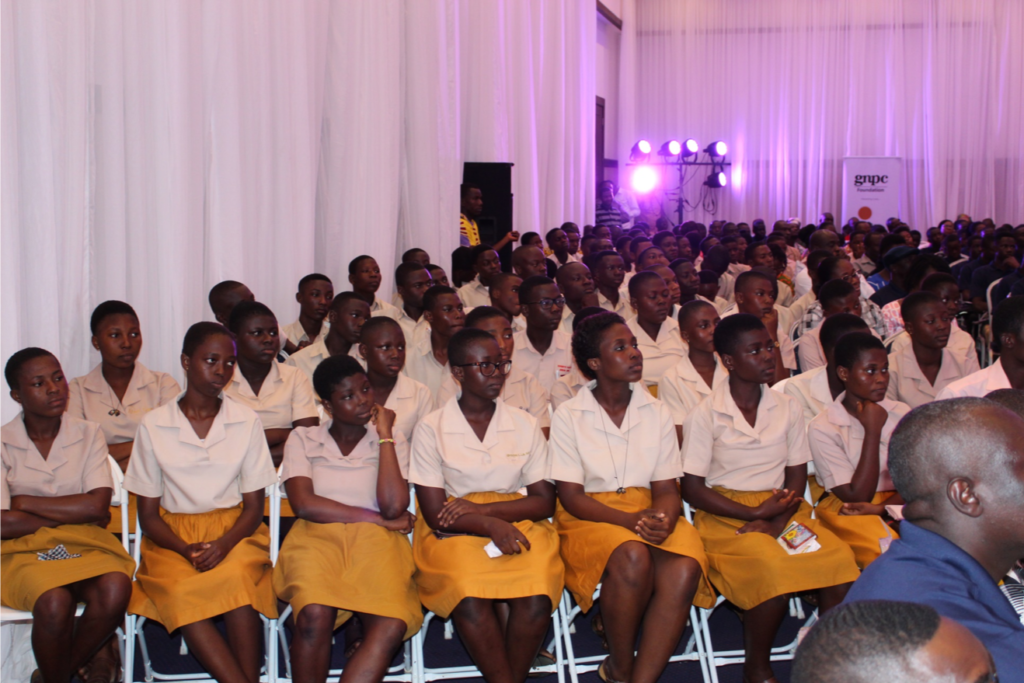
Aker Energy GNPC Scholars at Archbishop Porter Girls Senior High at The Scholars inauguration 2018
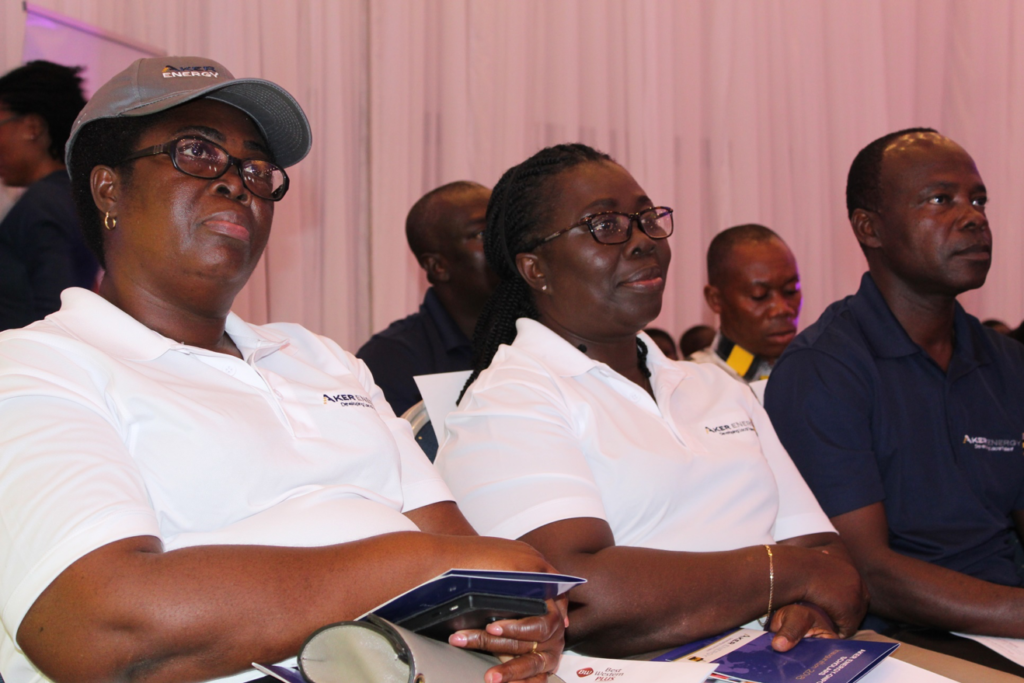
Representatives from partners some partner school

Aker Energy GNPC Scholars at Nkrofu Argic Senior High School
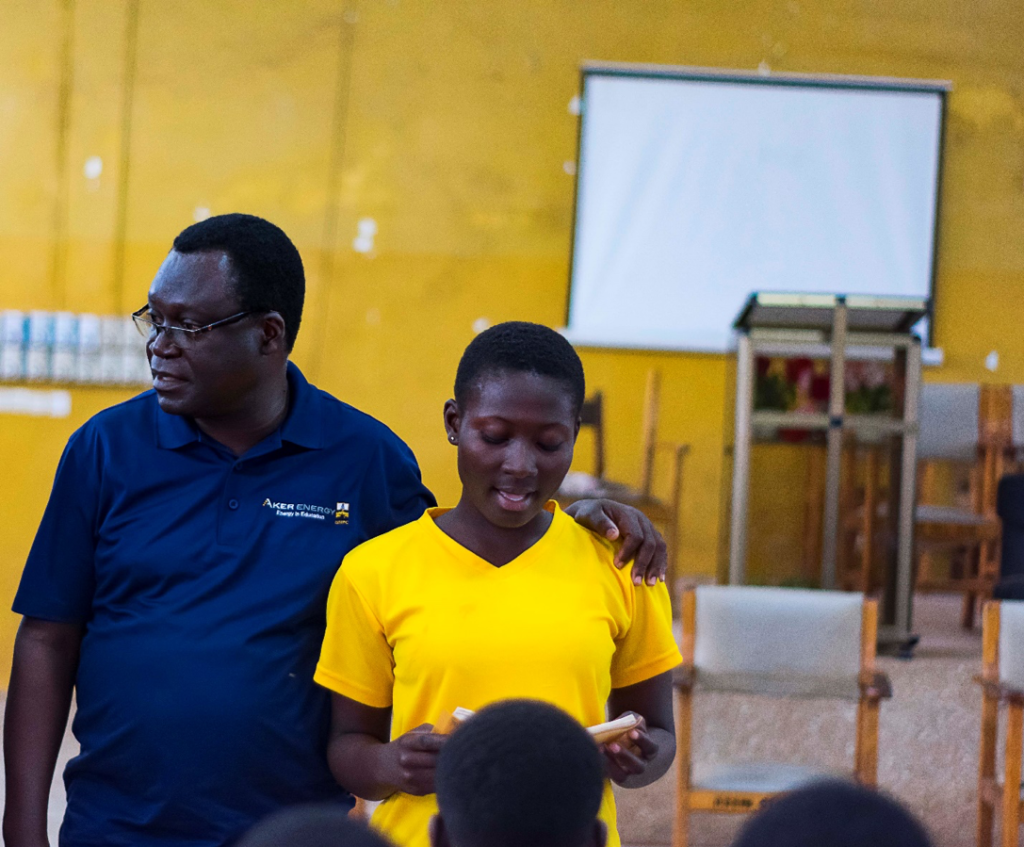 The Hess GNPC scholars program began in 2012 after a proper Needs Assessment was carried out in the six coastal districts of the Western Region namely Shama, Ellembelle, Sekondi Takoradi, Ahanta West, Jomoro and Nzema East to determine the most pressing needs of these communities. These communities have been identified as those that receive the most impact from Hess offshore operations.
The Hess GNPC scholars program began in 2012 after a proper Needs Assessment was carried out in the six coastal districts of the Western Region namely Shama, Ellembelle, Sekondi Takoradi, Ahanta West, Jomoro and Nzema East to determine the most pressing needs of these communities. These communities have been identified as those that receive the most impact from Hess offshore operations.
ESL began this program in January, 2016 after the take over from Montros ( the former program management)
796 students selected from these areas have benefitted from the program. Four year groups representing 396 students have graduated from the program successfully;
- The success of the Scholars program over the years can be attributed to the regular mentoring and counselling that is given to scholarship beneficiaries.
- ESL Field officers go into the various schools on a regular basis to check on class attendance, discipline and to encourage students to study harder
- The ESL team provide counsel on any issues that may arise. Termly results are scrutinized on a student-by-student basis to identify trends in scholar performance and this informs the kind of advice that is given to each student.
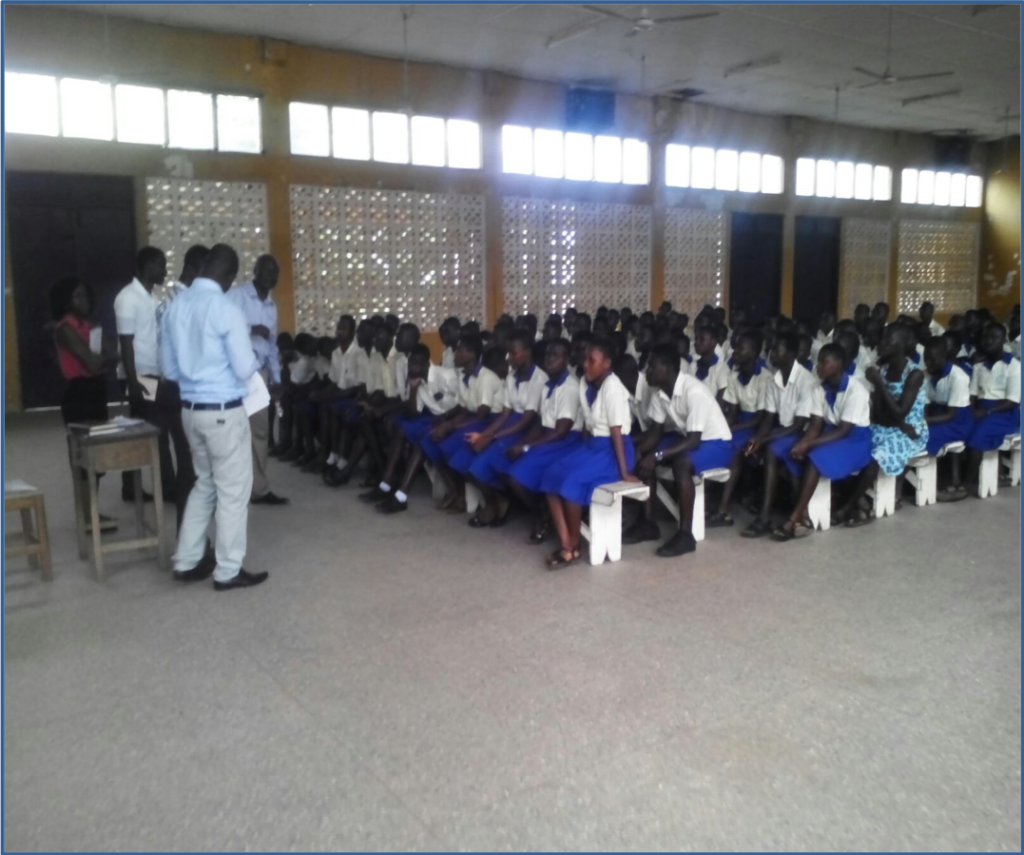
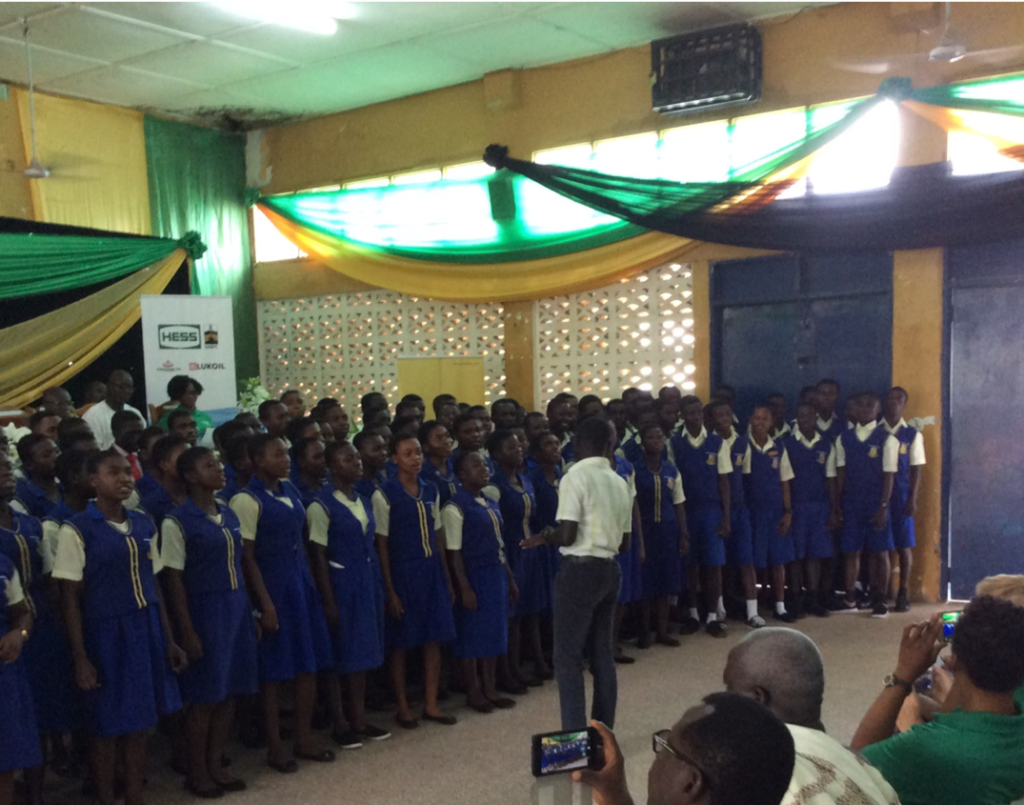
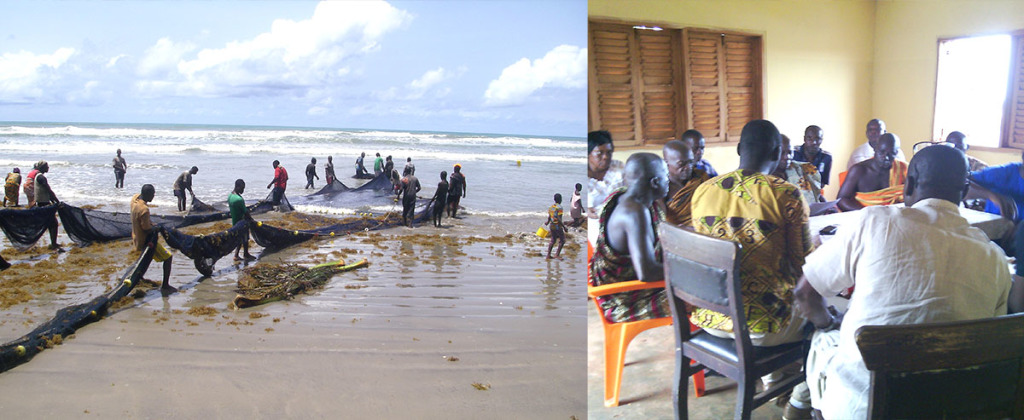


Rider Steel Ghana Limited 2012-2013. ESL carried out the ESIA for the Steel production plant at Tema, Ghana. The steel plant makes use of a water-cooled induction furnace with reduced environmental emissions for melting scrap and reprocessing it back to steel.
Ghana Oil Services Terminal (OST) 2012. ESL undertook ESIA for the new OST in the Western Region of Ghana at Atuabo for Lonrho Ghana Limited (with ERM).
Tullow Deep Water Tano Baseline Survey (2011). ESL undertook benthic infauna analyses component of the Deep Water Tano Environmental baseline studies in partnership (with CSA International).
Tullow Jubilee Field Drill Cuttings Survey (2011). ESL undertook benthic infauna analyses for the Jubilee Field Drill Cuttings Study in partnership (with CSA International).
Tullow Fisheries Study (2010-11). ESL undertook fisheries studies with ERM (Hong Kong) as part of the Jubilee Oil Phase I Development Project for Tullow Ghana Limited.
AngloGold Ashanti Mines (2010). Ground Water Quality Monitoring, Borehole Infrastructure Assessment and Pumping Tests for Hundred (100) Boreholes within the Obuasi, Ghana.
National Oil Company of Liberia Phase I (2009-2011). International consultancy to the Government of Liberia on the extension of the outer limits of the continental shelf of Liberia.
MTN-West Africa Cable System (2009). ESL with ERM (South Africa) undertook onshore and offshore preliminary environmental assessment for the Ghana section of the international telecom cable for MTN Ghana Limited.
Ghana Jubilee Offshore Oil Development EIA (2009). The Jubilee Field Phase One Development involves the extraction of hydrocarbon from an underground reservoir located in deepwater offshore Ghana in the Western Region, located 60 km from the land
West Africa Gas Pipeline (WAGP) project (2003-6).
West Africa Gas Pipeline (WAGP) project (2003-6).
ESL led the local counterpart team in the execution of the offshore and onshore EIA of the WAGP project. The terms of reference for the EIA sub-contractor was to generate a high-quality EIS acceptable to the proponent, World Bank, Ghana EPA and other interested groups worldwide, identifying all potential impacts and recommending appropriate mitigation and/or management plans within a very limited time schedule.
Keta Sea Defense Works (KSDW) project (2001-5).
The KSDW was a huge project aimed at reducing the coastal erosion, reclaiming land and constructing a link road within the Keta area in the Volta Region of Ghana. Current ESL staff was involved, with other foreign counterparts, in the scientific study on the erosion problem, EIA and engineering design of the project. ESL was engaged in the EMS of the project which lasted 4 years.
Keta Sea Defense Works (KSDW) project (2001-5).
The KSDW was a huge project aimed at reducing the coastal erosion, reclaiming land and constructing a link road within the Keta area in the Volta Region of Ghana. Current ESL staff was involved, with other foreign counterparts, in the scientific study on the erosion problem, EIA and engineering design of the project. ESL was engaged in the EMS of the project which lasted 4 years.
Saltpond Offshore Producing Company Limited (SOPCL) 2006.
ESL consultants produced the first EMP for SOPCL which is jointly operated by the Ghana National Petroleum Corporation (GNPC) and Lushann Eternit Energy Limited. for the period 2008-2011. The report appraised the existing environmental performance of the SOPCL activities and provided an EMP with recommendations for meeting international and local standards required for its operations.
ESL STAFF/CONSULTANTS HAVE ALSO WORKED WITH FOLLOWING CLIENTS:

Halcrow New York (USA)
Tema and Takoradi Port Development Master Plans. Environmental Impact Assessment for Preliminary Environmental Report. (2008).

AngloGold Ashanti
Surface and Ground water Quality Survey of the Iduapriem Mine, Tarkwa, Ghana. (2008).

Tullow Ghana Limited
Tullow Fisheries Study (2010-11). ESL undertook fisheries studies with ERM (Hong Kong) as part of the Jubilee Oil Phase I Development Project for Tullow Ghana Limited.. (2010-11).
